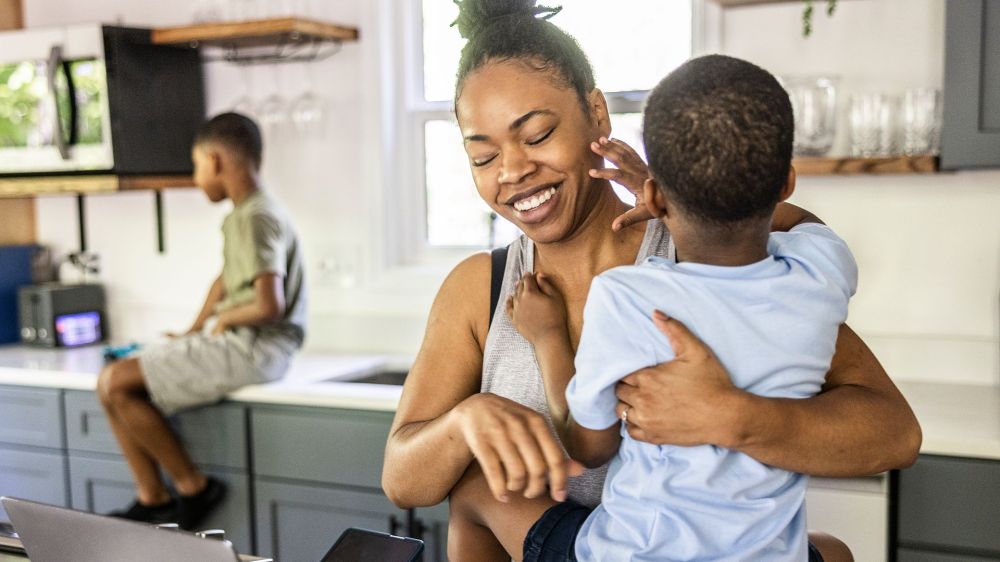 Getty Images
Video Coming Soon
Getty Images
Video Coming Soon
Even if they won’t admit it, parents do have a favorite kid
By Craig Nigrelli (Anchor), Shea Taylor (Producer), Emma Stoltzfus (Video Editor/Producer)
Everyone with a sibling knows it can feel like their parents have a favorite. It turns out they do, at least according to a new study.
Media Landscape
See how news outlets across the political spectrum are covering this story. Learn moreBias Distribution
Left
Right
Untracked Bias
Researchers at Brigham Young University looked at the results of more than 30 studies including more than 19,000 participants and found parents do, indeed, treat their children differently.

Download the SAN app today to stay up-to-date with Unbiased. Straight Facts™.
Point phone camera here
For the study, researchers look at five key areas of parent-child interaction:
- Overall treatment.
- Positive interactions (praise and displays of affection).
- Negative interactions (criticism or fighting).
- Resource allocation (spending time with a child and material resources).
- Behavior control (setting rules and expectations).
They found one of the biggest factors is birth order. Researchers said parents tend give older siblings more autonomy, like later curfews and more freedom to make their own decisions.
A child’s personality characteristics also play a huge role. Basically, children who show more conscientiousness and responsibility have fewer negative interactions with their parents. They’re the kids who do their chores without having to be told, for example.
Agreeable children who show more cooperation and consideration also usually see more positive parental responses.
The study found, contrary to popular belief, both mothers and fathers tend to favor daughters over sons, though the children surveyed did not notice that discrepancy.
Researchers said the children who receive less favorable treatment are more likely to experience mental health and relationship issues.
EVERYONE WITH A SIBLING KNOWS IT CAN FEEL LIKE YOUR PARENTS HAVE A FAVORITE.
TURNS OUT – THEY DO, AT LEAST ACCORDING TO A NEW STUDY.
RESEARCHERS AT BRIGHAM YOUNG UNIVERSITY LOOKED AT THE RESULTS OF MORE THAN 30 STUDIES INCLUDING MORE THAN 19-THOUSAND PARTICIPANTS… AND FOUND PARENTS DO, INDEED, TREAT THEIR CHILDREN DIFFERENTLY.
FOR THE STUDY, RESEARCHERS LOOK AT FIVE KEY AREAS OF PARENT-CHILD INTERACTION:
OVERALL TREATMEANT…
POSITIVE INTERACTIONS – LIKE PRAISE AND DISPLAYS OF AFFECTION…
NEGATIVE INTERACTIONS – LIKE CRITICISM OR FIGHTING…
RESOURCE ALLOCATION – WHICH IS SPENDING TIME WITH A CHILD AND MATERIAL RESOURCES…
AND BEHAVIOR CONTROL – WHICH IS SETTING RULES AND EXPECTATIONS.
HERE’S WHAT THEY FOUND:
BIRTH ORDER MAKES A BIG DIFFERENCE.
RESEARCHERS SAY PARENTS TEND GIVE OLDER SIBLING MORE AUTONOMY, LIKE LATER CURFEWS AND MORE FREEDOM TO MAKE THEIR OWN DECISIONS.
A CHILD’S PERSONALITY CHARACTERISTICS ALSO PLAY A HUGE ROLE.
BASICALLY, CHILDREN WHO SHOW MORE CONSCIENTIOUSNESS AND RESPONSIBILITY HAVE FEWER NEGATIVE INTERACTIONS WITH THEIR PARENTS.
THEY’RE THE KIDS WHO DO THEIR CHORES WITHOUT HAVING TO BE TOLD, FOR EXAMPLE.
AGREEABLE CHILDREN – WHO SHOW MORE COOPERATION AND CONSIDERATION – ALSO USUALLY SEE MORE POSITIVE PARENTAL RESPONSES.
THE STUDY ALSO FOUND THAT – CONTRARY TO POPULAR BELIEF – BOTH MOTHERS *AND* FATHERS TEND TO FAVOR DAUGHTERS OVER SONS… THOUGH THE CHILDREN SURVEYED DID *NOT* NOTICE THAT DISCREPANCY.
RESEARCHERS SAY THE CHILDREN WHO RECEIVE LESS FAVORABLE TREATMENT ARE MORE LIKELY TO EXPERIENCE MENTAL HEALTH AND RELATIONSHIP ISSUES.
KEEP UP WITH ALL YOUR LATEST HEADLINES BY DOWNLOADING THE STRAIGHT ARROW NEWS APP TODAY.
Media Landscape
See how news outlets across the political spectrum are covering this story. Learn moreBias Distribution
Left
Right
Untracked Bias
Straight to your inbox.
By entering your email, you agree to the Terms & Conditions and acknowledge the Privacy Policy.
MOST POPULAR
-
 Getty Images
Getty Images
Democrats in Congress receive lowest approval rating in Quinnipiac poll history
Watch 2:5912 hrs ago -
 Getty Images
Getty Images
AG Bondi reviewing Epstein documents for release, could hold client list
Watch 1:4812 hrs ago -
 Getty Images
Getty Images
Speaker Johnson won’t support DOGE stimulus checks
Watch 2:0614 hrs ago -
 Reuters
Reuters
UN chief reveals his plan for peace in Haiti to Caribbean leaders
Watch 2:1516 hrs ago




